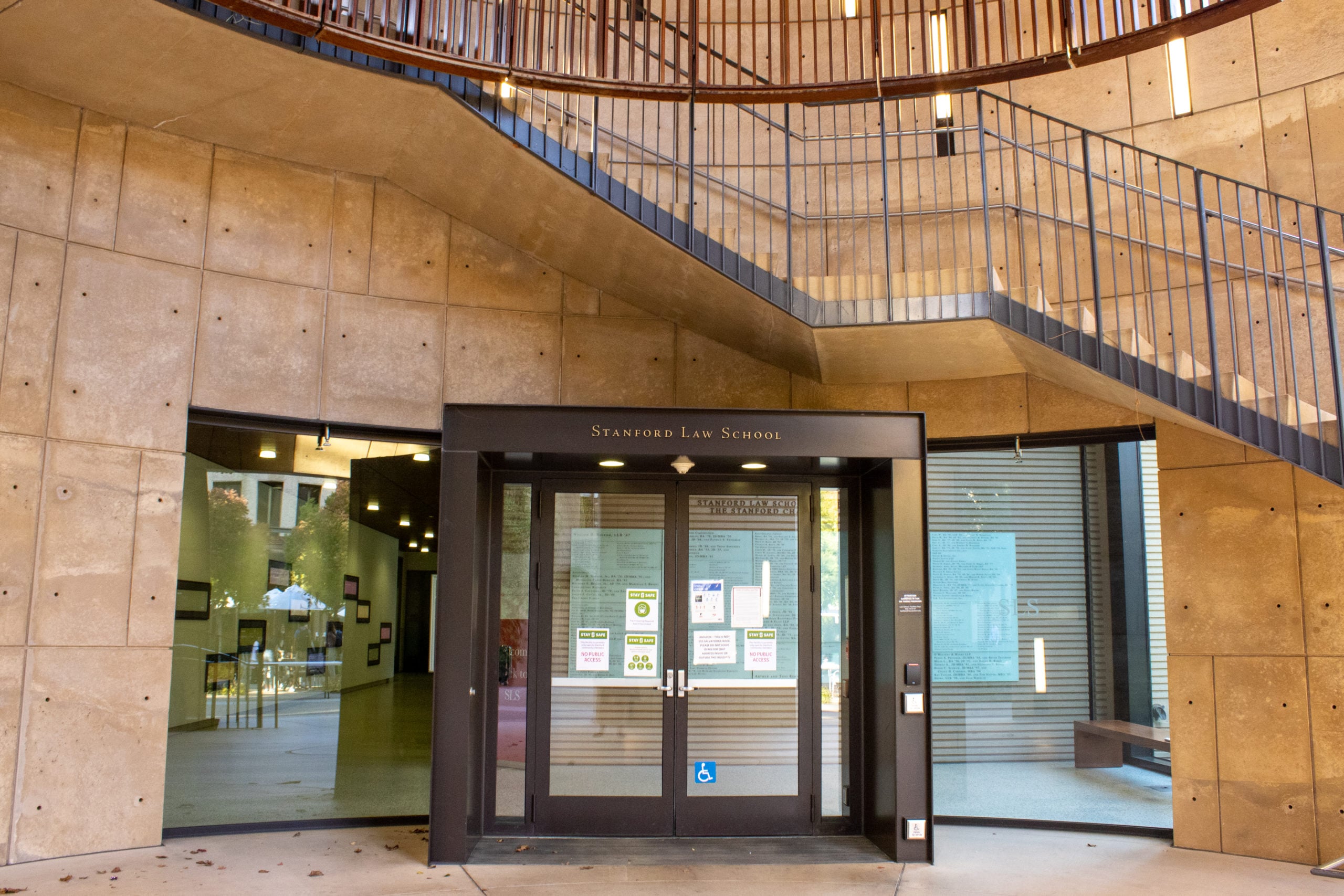Stanford President Marc Tessier-Lavigne renewed the University’s commitment to academic freedom and teased new measures to safeguard free expression in an email to the campus community Monday morning.
The endorsement of academic freedom at the highest level of Stanford leadership comes after law students protested a speech by conservative federal judge Kyle Duncan on March 9. Duncan was invited to campus by Stanford’s chapter of the Federalist Society. The student activists cited Duncan’s extensive record of opposing LGBTQ rights in court as their decision to protest his speech. The incident sparked national attention after videos of protestors and Duncan verbally sparring made rounds online.
Beyond the protesters’ disruption of Duncan’s speech, critics pointed to the Stanford Law Associate Dean of Diversity’s intervention in the middle of Duncan’s speech. After Duncan asked for an administrator to calm the crowd, the associate dean, Tirien Steinbach, gave remarks in which they asked whether “the juice was worth the squeeze,” seeming to question whether Duncan felt his actions were worth the reactions they garnered. Steinbach later reiterated Duncan’s right to speak before giving the floor back to him.
Two days after the event, Tessier-Lavigne and Jenny Martinez, the dean of Stanford Law School, apologized to Duncan for the disturbance, stating that it violated the school’s policies. In a 10-page memorandum to the law school community, Martinez announced on March 22 that Steinbach is “currently on leave.”
Tessier-Lavigne called the disruption of Duncan’s speech “deeply disappointing,” writing that individuals who “disagree with a speaker are fully within their rights to express their views and even protest; what they may not do is disrupt the effective carrying out of the event.”
In 1974, Stanford’s Academic Council adopted a comprehensive framework protecting academic freedom. “Expression of the widest range of viewpoints should be encouraged, free from institutional orthodoxy and from internal or external coercion,” reads the University’s “Statement on Academic Freedom.”
Tessier-Lavigne also announced the development of new University-wide initiatives that will launch this quarter that seek to “safeguard and strengthen the norms and values that support a robust learning community.” This comes after Martinez announced that law school officials are reviewing policies and procedures to effectively manage disruptions and planning free speech educational programming for students and staff.
Though he did not provide specific details about the initiatives, Tessier-Lavigne wrote that they would be developed in consultation with students, faculty and staff.
“In consultation with the faculty and relevant offices, we aim to further clarify the opportunities and expectations of being in a learning community,” Stanford spokesperson Dee Mostofi told The Daily. “The President and Provost also look forward to the recommendations of the Faculty Senate Committee on Speech, which will add to our collective efforts to reinforce values.”
Despite the apology and Martinez’s forceful memo, the University’s actions have failed to placate the outrage of conservative judges and policymakers. Two conservative federal appeals court judges announced they would stop hiring Stanford Law School graduates and House Republicans reported to the American Bar Association that the law school is “out of compliance” with accreditation standards mandating the promotion of free speech.
Tim Rosenberger J.D. ’23 MBA ’23, the president of Stanford’s chapter of the Federalist Society, wrote in a statement that Tessier-Lavigne’s message was “a good step in revitalizing Stanford.”
“As Judge [James] Ho said in his recent announcement of his Stanford hiring boycott, Stanford can make a great deal of progress in balanced hiring of faculty and administrators,” Rosenberger added.
While conservatives have been critical of the University’s handling of the event, others have supported the student protestors. The American Constitution Society Board — a progressive legal organization — sent a letter to Tessier-Lavigne and Martinez criticizing their apology letter to Duncan, and law students have protested Martinez in classrooms and hallways.
Controversy over academic freedom at Stanford is not new. During the height of the pandemic, Stanford faculty members publicly debated the limits of academic freedom. In September 2021, more than 100 School of Medicine faculty members condemned the actions of Hoover Institution Senior Fellow Scott Atlas, who advocated for herd immunity and against masking as special adviser to then-President Donald Trump.
The debate quickly broadened beyond Atlas and scrutiny of the Hoover Institution rose to new heights with some faculty members claiming that the spread of misinformation by some fellows was dangerous and ought to be condemned by University leaders while others asserted it was a beacon of academic freedom.
Only after Atlas urged Michigan residents to “rise up” against new lockdown orders did Stanford distance itself from the senior fellow, issuing a statement that Atlas’ position was his alone and that his views were “inconsistent with the university’s approach in response to the pandemic.” In November 2020, the Faculty Senate voted to condemn Atlas’ pandemic-related actions by a vote of 85 to 15.
Tessier-Lavigne ended his message by advocating for a culture of empathy and respect toward diverse perspectives, encouraging constructive dialogue while recognizing the humanity of each community member.
“As we enter the final quarter of this academic year, let us recommit ourselves to rising above the lowest-common-denominator discourse,” Tessier-Lavigne wrote.
